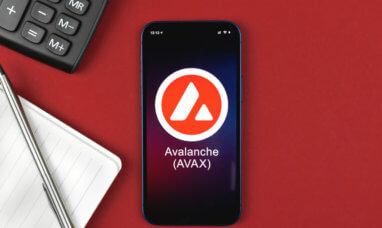Recently, I heard an extremely intriguing story about investment. You see, a very good buddy of mine made a cryptocurrency investment and engaged in yield farming on what he believed to be a reasonably secure investment. He had been performing exceptionally well for a few weeks. But someone managed to exploit the ecology he had invested in. He quickly lost all of his profits, plus some, as they essentially emptied the collateral associated with his investment.
When it was all said and done, he was able to exit with only a 20% loss. It was a wild trip watching the token price that was the source of all the commotion. In two weeks, the value went from less than $1 to $60 in a nutshell. Then yesterday it virtually quickly dropped from $60 to $28 before rocketing back up to $50 before dropping all the way to $0. The entire incident took place in a matter of hours. The value created in the billions of dollars then vanished. The fortunes of tens of thousands of people were made, then changed. You can see that my friend’s investment was far from secure.
My Friend Was Really Lucky
How is losing 20% of your investment considered lucky? He was fortunate in that his situation could have been considerably worse. I participate in several online communities and group chats where some people practically waste their life savings on this risky endeavor. Fortunately, my pal wasn’t fully exhausted.
But the 20% loss really took a toll on his mental state. Losses of such nature are difficult to take, especially when they occur so quickly. Fortunately, my friend is still young, makes a solid living, and has lots of time to turn things around. He was aware from the beginning that it was a dangerous gamble. He probably wouldn’t have taken a chance on such a risky investment if he were older and closer to retirement.

Pixabay
11. Reduce Your Risk As You Get Closer to Retirement
I frequently advise seniors to reduce their investment risk as they approach (or actually enter) retirement. They must use a little more caution when they no longer have a reliable source of income and must start taking withdrawals from their retirement fund. Sadly, when the stock market is flourishing as it has been lately, advice like this can frequently go unheeded. In reality, many senior citizens have recently been acting in the exact opposite way, increasing their exposure to stocks and reducing the number of bonds in their portfolios. I suppose the chances of profit are simply too alluring.
True, interest rates are extremely low, and bonds may suffer if rates increase. However, you require bonds’ reduced volatility to balance out equities’ high volatility. As you approach your senior years, controlling risk becomes far more crucial than increasing profits. Here are some investing possibilities you could be thinking about as a senior, along with their level of safety.

10. Savings And Money Market Accounts
Let’s start with the most secure choice. While the general public employed these savings instruments in the past to increase their wealth, central banks’ constant pressure to decrease rates since the 1990s has caused yields to drop to astonishing lows. Getting 0.5% or 0.6% APY today on your money is considered lucky. And that applies only if you deposit money into an online money market or savings account. If you visit a conventional brick-and-mortar bank, the interest rate will be absurdly low, like 0.02%.
However, that little development is almost a given. The FDIC insures your funds up to $250,000 in total. Therefore, even if the firm holding it suddenly fails, it is entirely secure. Many senior citizens deposit money into the money market or standard savings accounts only to have it accessible and protected against extreme volatility.
Risk Level: Very Safe

9. Government Bonds
Bonds are essentially debts that you purchase. It might be a government debt, but it’s more likely to be a debt from a firm. A certain project is connected to some bonds. For instance, the local government might issue a municipal bond to expand local services like a fire station or police station.
Even the federal government of the United States issues bonds in the form of treasury bonds to pay its debts. These bonds are typically regarded as the safest of all bonds. After all, if the U.S. Treasury decided to default on its debt, we all have much bigger issues to be concerned about. Bonds are valuable in the case of default since they are high on the capital stack. You will have first dibs on recouping your capital through asset sales of whatever is left, as determined by the bankruptcy court, as long as you are a bondholder.
Risk Level: Safe to Very Safe

8. Junk Corporate Bonds and Investment Grade
Bonds are frequently issued by private enterprises to cover costs as well. Some businesses, like Apple, issue loans at exceptionally low rates because investors believe they have solid financial standing and can meet their obligations. Since fewer individuals are confident that the struggling theater company will be able to pay back all of their debt, other corporations, like AMC, have lately issued bonds at considerably higher interest rates.
Rating agencies assign companies a score based on how likely it is that they will be able to pay their debts back. High chances exist that investment-grade corporations will fulfill their obligations. In the meanwhile, businesses that run a significant risk of defaulting on their obligations issue “junk” loans. The higher rates that these junk bonds give appeal to a lot of seniors. However, it is usually best to limit oneself to government and investment-grade corporate bonds. Keep your portfolio in stock if you still want a little bit of risk in it.
Risk Level: Safe to Moderate

7. Stocks
Many people have become wealthy thanks to individual stocks. It has also rendered many (MANY) others bankrupt. When you purchase a single share of stock, you are placing a long-term wager on the company’s ability to increase earnings and reward shareholders. Being correct on a regular basis is challenging, but it’s amazing when you’re right.
Additionally, there is a lot of short-term conjecture. Despite the fact that historically over many decades, the stock market has never lost value, there is still a lot of volatility. Market depressions, which can span years, are common. It can be excruciatingly difficult to observe the stock graphs continuously flashing red for months on end if you were depending on that money since you are no longer receiving a regular wage. Most seniors should avoid individual equities because of their high volatility and risk of financial disaster. Instead, you should place more of an emphasis on stock funds for equity exposure; we’ll get to that in a moment.
Risk Level: Risky to Very Risky

6. Preferred Stock
Seniors have flocked to “preferred stocks” during the past few years, drawn by the high payouts. Preferential equities are typically required to make their distributions prior to the payment of any dividends to stockholders.
These preferred stock values typically track changes in interest rates. Preferred stock value decreases when interest rates climb. The significant decline in interest rates over the past ten years is why they are currently at an all-time high. However, use caution as the majority of preferred stocks are selling at prices far above par. This implies that you will immediately lose money if the corporation decides to redeem these shares. Your investments will lose value as interest rates rise.
Finally, in the case of bankruptcy, preferred stockholders will only be able to recoup their capital after bondholders. So, if the business fails, you might get part of your money back, but don’t hold your breath. However, it’s still a lot better than common shareholders. Typically, when a company fails, that group receives nothing. However, a lot of reliable corporations have issued preferred stocks. Now that you can no longer recoup revenue from employment, stay away from dubious ones. Overall, preferred stocks might provide you with respectable returns. However, you must conduct adequate research.
Risk Level: Moderate. The risk of ruin is basically in the middle of bond and equity risk.

5. Real Estate
Real estate has helped a lot of people around the world accumulate money. When you purchase a high-quality property, you can borrow money to increase the power of your capital, share in the value growth, and earn rent as you go. What is there to dislike?
However, managing a property is more similar to managing a business than passive investing. There aren’t many maintenance calls at three in the morning. The costs of properties, screening renters, and maintenance/repair still need to be considered. Although being a landlord might be lucrative, do you really want to deal with the trouble in your later years? I know many people who do, but many more want to sell their real estate holdings when they retire. You truly have a choice.
Risk Level: Moderate (But More Like Running a Business Than Investing)

4. Real Estate Investment Trusts (REITs)
The concept of real estate investment trusts (REITs) is intriguing. Equity REITs are organizations that primarily manage a portfolio of properties (and a team of people to manage them). Like normal stocks, they can be traded during market hours and are purchased through stock exchanges.
Others enjoy receiving greater dividends. But you’re adding market risk and volatility to the mix. Seniors should also be aware that purchasing a REIT is not the same as purchasing real estate. When you invest in a certain REIT, you have a stake in the company’s success. By chance, the business handles properties and relies heavily on debt to provide returns.
A higher yield is an advantage in this case. The drawback is considerable volatility, much like stock prices. Even while REITs typically use significant leverage and have a very strong property portfolio, they are nonetheless susceptible to bankruptcy. Watch out for this.
Risk Level: Risky to Very Risky

3. Mortgage REITs (mREITs)
REITs come in two different varieties. One type is referred to as equity REITs, and these are businesses that purchase, manage, and market real estate. Mortgage REITs are a different class of REIT. These businesses essentially offer investors loans for the purchase of real estate.
Seniors should avoid mortgage REITs since they are significantly more difficult to grasp. This is due to how volatile stock values are, even for stable companies. Retirement-age individuals just do not require the added stress of seeing their finances fluctuate so rapidly. However, there is a significant upside because some of these businesses appear to print money (if you can stomach the risk).
Risk Level: Risky to Very Risky (Higher than Equity REITs)

2. Funds
The risk associated with any of the aforementioned assets can be reduced. Simply making an investment in a fund will do. Stock funds, bond funds, and even REIT funds are available. All of them trade on significant exchanges. In essence, funds are a type of financial instrument that makes investments in a variety of underlying assets. You can obtain some diversity by investing in a fund as opposed to a single security. This disperses the risk across all of the fund’s investments. The drawback is that because fund firms are businesses that need to make money, you must pay them a fee in the form of an expense ratio. The manager’s investment decisions have an impact on how well your investments perform.
Many of these shortcomings are addressed by index funds. For starters, these funds merely attempt to mimic the entire stock market. As a result, you avoid trying to predict winners. Second, they don’t impose any excessive fees. The Vanguard Total Market Index Fund (VTI) only levies an annual fee of 0.03% of assets. The charge is actually significantly lower than the reported expense ratio since Vanguard lends the shares it holds to earn money. There is speculation that the income from lending securities could one day be so great that investors would be compensated for using Vanguard’s index fund.
Funds for seniors are strongly encouraged, especially index funds that don’t try to identify winners. Simply put, it’s a lot safer choice.
Risk Level: Reduces the danger of trying to choose specific stocks, bonds, or REITs.

Pexels
1. Crypto Assets/Cryptocurrencies
It’s incredibly hazardous to invest in cryptocurrencies like Bitcoin, Ethereum, and others. The public’s imagination was undoubtedly caught by the spectacular surge in value (TO THE MOON! If you want to experiment with these assets, you better be an expert.
At exchanges like Coinbase, it’s comparatively simpler to purchase these coins. However, in order to own and trade these assets, you must have your own cryptocurrency wallet and be proficient in using decentralized financing methods.
These assets’ valuations are likewise incredibly erratic. Black swan occurrences and scams abound in them as well. I already reported how quickly my friend lost 20% of his weight. The Dallas Mavericks are owned by a well-known businessman and billionaire Mark Cuban. He has good technical knowledge. But during the same market event, he completely lost all of his investment in a connected investment. The loss was reportedly in the neighborhood of $2.5 million.
Ouch. However, he is a billionaire, so try not to feel too bad for him. He is still earning a good living. He probably merely temporarily lost some confidence, which was all. But if you invest in Dogecoin, do you have the money to cover any unforeseen losses? You’d best take care of this. Crypto is like riding a roller coaster.
Risk Level: Extremely Risky

Conclusion
No matter your age, investment dangers remain the same. However, seniors do not have the luxury of waiting for a recovery in investment values. They also don’t have as much earning potential to bounce back from a total loss. For these reasons, as you get older, you should steer clear of riskier investments.
My friend understood his mistake. Fortunately, he has plenty of time to work and make wise investments to recoup the lost funds. But what if you lose a lot and cannot afford the same luxury? Seniors should typically choose comfort and stability over trying to strike it rich. What good is it to put your current way of life at risk in the hope of making millions, really? Even if you do win the stock market or cryptocurrency jackpot, you most likely won’t live long enough to spend it all. It has a considerably higher likelihood of becoming a disaster.

Featured Image: Unsplash @ mbennettphoto








